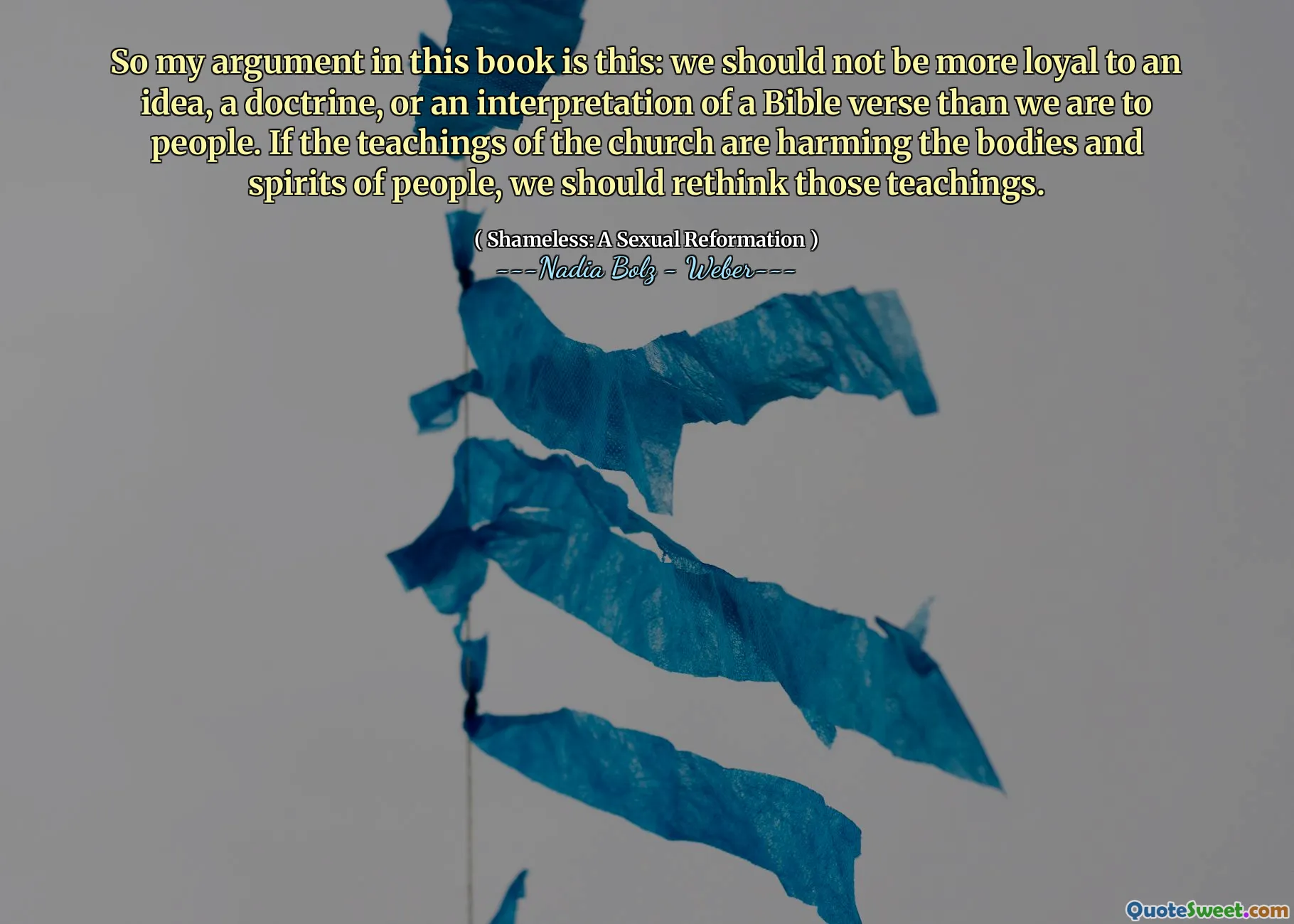
So my argument in this book is this: we should not be more loyal to an idea, a doctrine, or an interpretation of a Bible verse than we are to people. If the teachings of the church are harming the bodies and spirits of people, we should rethink those teachings.
This quote resonates deeply with the essential moral principle of prioritizing human well-being over rigid doctrinal adherence. In many religious traditions, doctrines and interpretations of sacred texts serve as guides for moral and ethical conduct. However, when these interpretations become tools of harm—whether emotional, physical, or spiritual—they warrant critical reevaluation. The message underscores the importance of compassion and humility within faith communities, urging believers to remember that the core of spiritual practice should be love and care for fellow human beings. Doctrine can sometimes become an inflexible structure that limits understanding and dismisses the lived experiences of individuals, especially those marginalized or negatively impacted by strict interpretations of religious teachings. Rethinking and reinterpreting teachings in light of compassionate principles ensures that faith communities foster environments of support rather than judgment or harm. This perspective challenges religious authorities and adherents alike to remain open-minded, flexible, and focused on the ultimate goal of spiritual growth—namely, fostering wholeness, healing, and acceptance in others. It promotes a thoughtful reevaluation of religious doctrines that may have unintentionally caused pain, reminding us that at the heart of faith should always be the well-being of people. Such an approach not only sustains the integrity of spiritual teachings but also enhances their relevance and compassion in contemporary society, aligning religious practice more closely with the fundamental values of love and justice.







